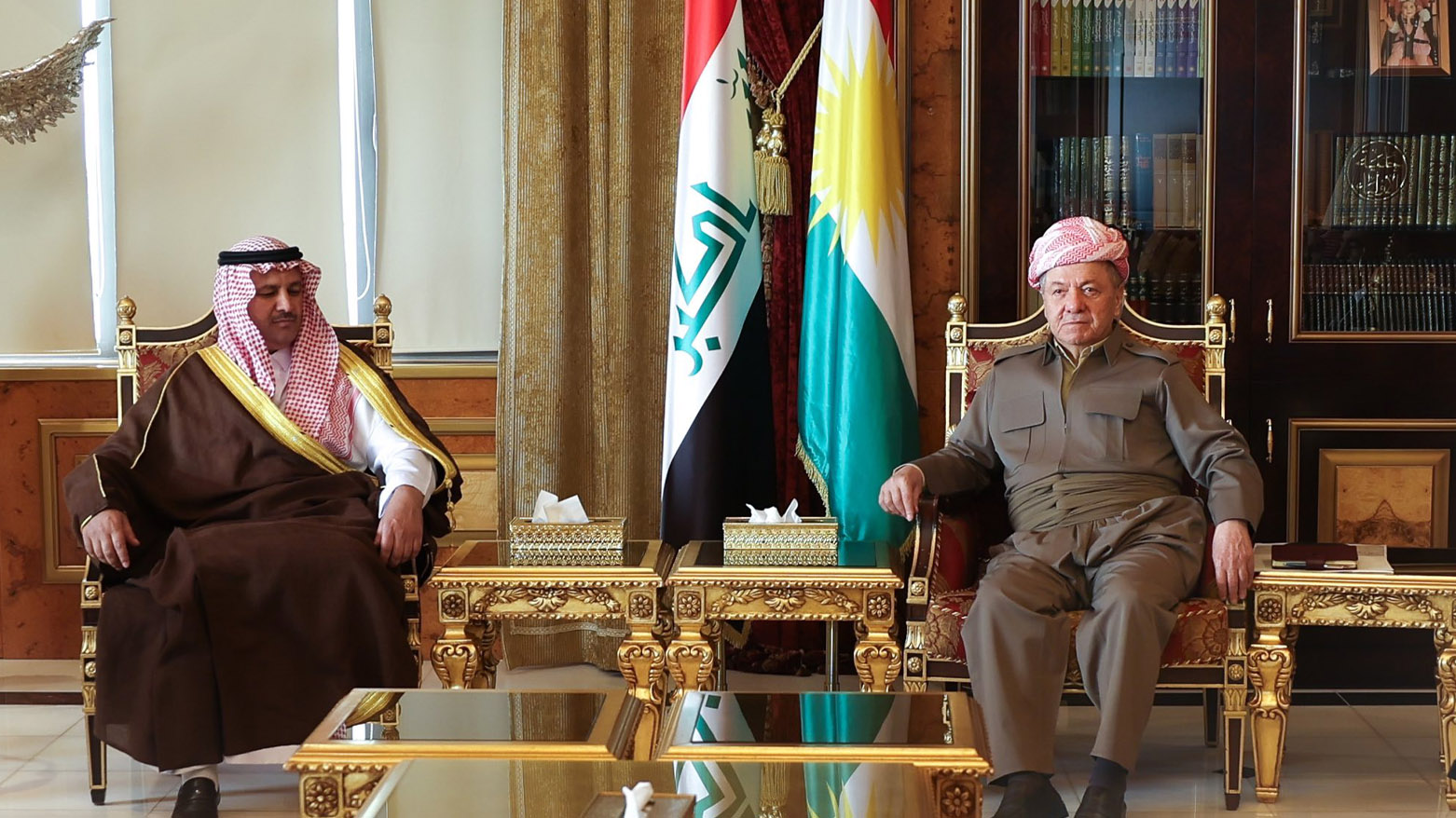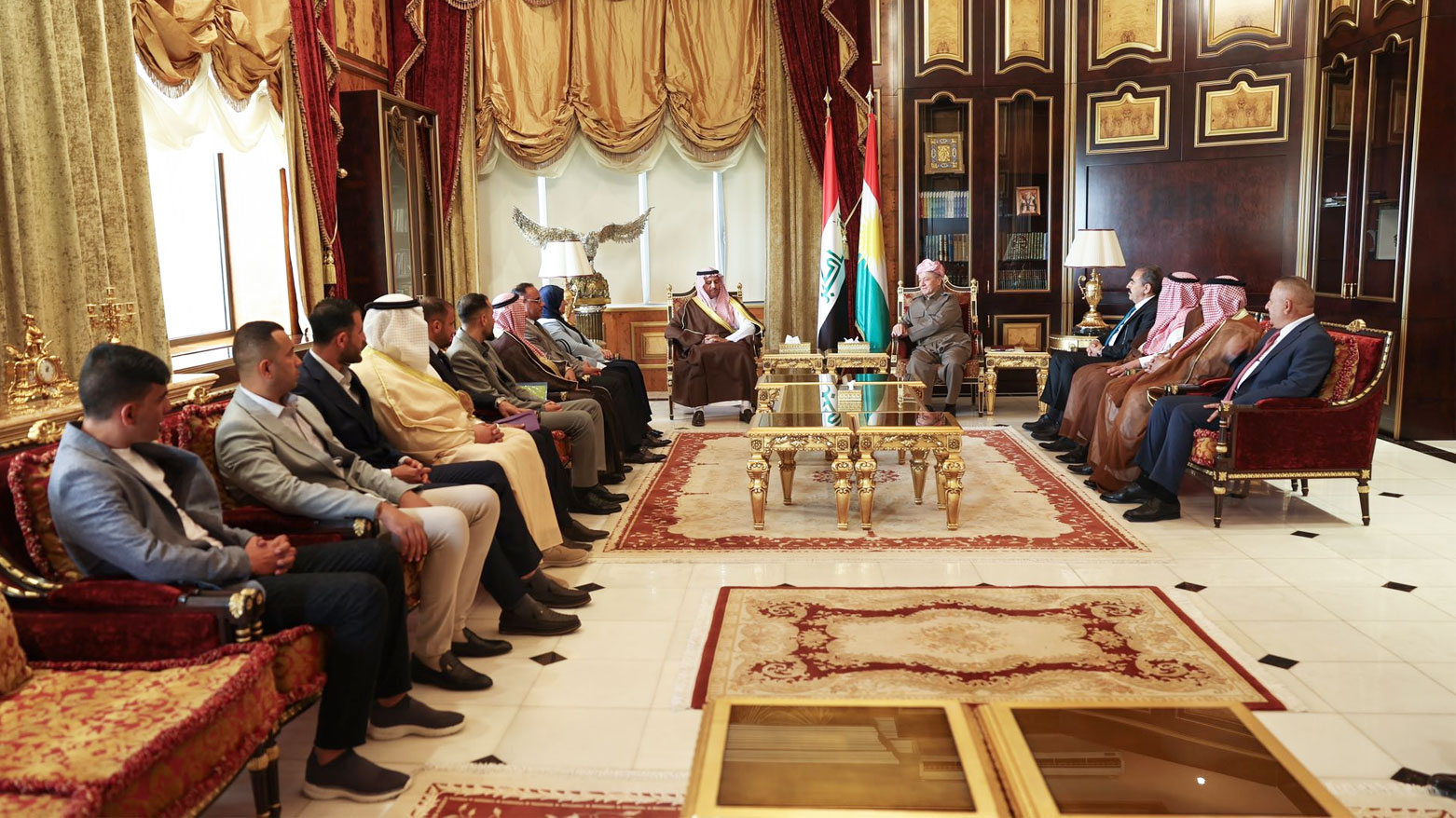President Barzani Welcomes al-Jubour Tribal Delegation, Stresses Unity Against Extremism
"There was particular focus on the danger posed by extremist ideologies and the necessity of eradicating narratives of hatred, sectarianism, and revenge that continue to threaten Iraq’s fragile social fabric," read the statement.

By Kamaran Aziz
ERBIL (Kurdistan24) – President Masoud Barzani on Sunday received a prominent tribal delegation from the al-Bughzat tribe of the al-Jubour clan in Pirmam. The meeting was led by Sheikh Issa Muhsen al-Sabeel and included Iraqi parliamentarian Mona Muhammad Khalaf Sabeel al-Jubouri and several other influential figures from the tribe.
According to an official statement from the Barzani Headquarters, the visiting delegation expressed deep appreciation for President Barzani’s enduring efforts to promote reconciliation and harmony among Iraq’s diverse ethnic and religious communities. In particular, they praised the Kurdistan Region’s compassionate and principled stance during the height of the ISIS conflict, when it sheltered hundreds of thousands of internally displaced persons from the central and southern parts of Iraq.
“The people of Kurdistan stood with their fellow Iraqis in some of the darkest moments,” Sheikh Issa noted, thanking both the leadership and citizens of the Region for their generosity and humanity. The remarks were widely interpreted as an endorsement of the Kurdish leadership’s moral authority in shaping Iraq’s post-conflict trajectory.
The meeting emphasized the importance of strengthening coordination between Iraq’s various components, with both sides underlining the urgent need to reinforce values of peaceful coexistence, mutual respect, and national unity.
"There was particular focus on the danger posed by extremist ideologies and the necessity of eradicating narratives of hatred, sectarianism, and revenge that continue to threaten Iraq’s fragile social fabric" read the statement.

As previously reported by Kurdistan24, President Barzani has long advocated for inclusive governance and cross-sectarian cooperation. His recent engagements—including meetings with Nineveh MPs and political figures like Khamis al-Khanjar, head of the al-Siyada Alliance—underscore a broader strategic effort to forge alliances with Sunni and moderate Arab leaders. These efforts are aimed not only at protecting Kurdish constitutional rights, but also at constructing a more stable and equitable political architecture for all Iraqis.
This meeting also comes at a time when Iraq is approaching its November 2025 elections, in which concerns over the proliferation of so-called “seasonal” political parties have raised alarm among legal experts and democratic observers. As Kurdistan24 has reported, Iraq now has more than 300 registered political parties—many of them lacking grassroots support or clear political agendas—leading to growing fears of vote fragmentation and political stagnation.
In such a volatile political environment, President Barzani’s strategy of fostering meaningful alliances with figures like al-Khanjar and engaging with key constituencies such as Nineveh’s representatives and tribal leaders from Sunni heartlands, seeks to build a foundation for post-election consensus and a more cohesive national vision.
President Barzani’s engagement with the al-Jubour clan—one of Iraq’s largest and most influential Sunni tribes—adds further momentum to a strategy centered on reconciliation, collective security, and mutual recognition among Iraq’s ethnic and sectarian mosaic.
The message from Pirmam was unambiguous: extremism has no future in Iraq, and coexistence must be the foundation of the country’s recovery and development. As the Kurdistan Region continues to position itself as both a safe haven and a platform for dialogue, meetings like this one offer hope for a more united and resilient Iraq.